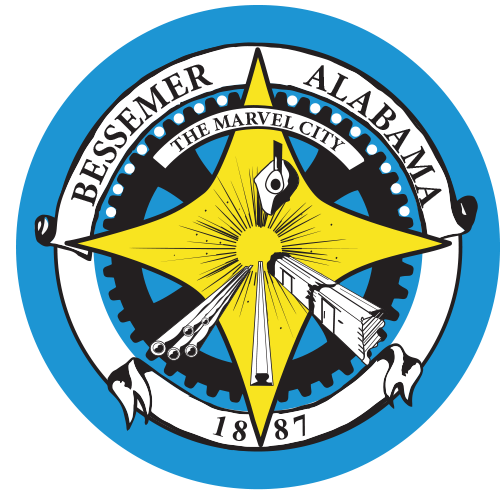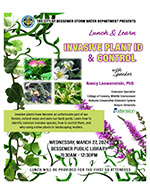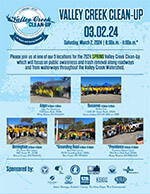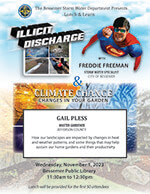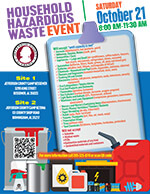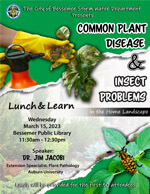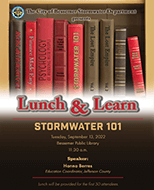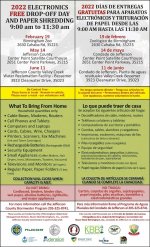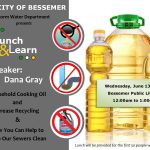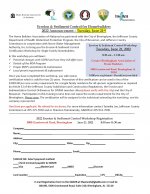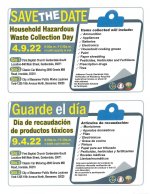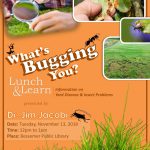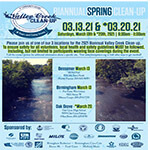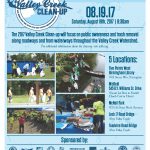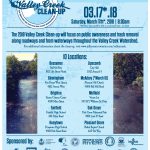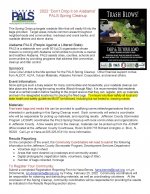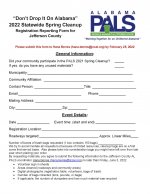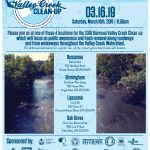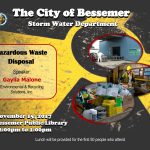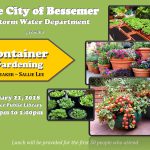STORMWATER
The City of Bessemer (The City) was issued by the Alabama Department of Environmental Management (ADEM) a Municipal Storm Sewer System (MS4) Phase 1 Permit No. ALS000022 on November, 7, 2022. The permit took effect on December 12, 2022 until December 11, 2027.
As a condition of this permit, “The permittee is required to develop, revise, implement, maintain and enforce a storm water management plan (SWMP) which shall include controls necessary to reduce the discharge of pollutants from its MS4 consistent with Section 401(p)(3)(B) of the Clean Water Act and 40 CFR Part 122.26.
The City’s SWMP is included here for public viewing and comments. All comments should be directed to Scott Gurley, Storm Water Specialist for the City.
CONTACT
SCOTT GURLEY
STORMWATER SPECIALIST
1700 Third Avenue North
Bessemer, Alabama 35020
tel: 205 424-4060 phone
tel: 205 481-4359 fax
What is Stormwater?
Stormwater runoff occurs when precipitation from rain or snowmelt flows over the ground. Impervious surfaces like driveways, sidewalks, and streets prevent stormwater from naturally soaking into the ground.
Stormwater can pick up debris, chemicals, dirt, and other pollutants and flow into a storm sewer system or directly to a lake, stream, river, wetland, or coastal water. Anything that enters a storm sewer system is discharged untreated into the water bodies we use for swimming, fishing, and providing drinking water.
Polluted storm water runoff can have many adverse effects on plants, fish, animals, and people.
Sediment can cloud the water and make it difficult or impossible for aquatic plants to grow. Sediment also can destroy aquatic habitats.
Excess nutrients can cause algae blooms. When algae die, they sink to the bottom and decompose in a process that removes oxygen from the water. Fish and other aquatic organisms can’t exist in water with low dissolved oxygen levels.
Bacteria and other pathogens can wash into swimming areas and create health hazards, often making beach closures necessary.
Debris—plastic bags, six-pack rings, bottles, and cigarette butts—washed into water bodies can choke, suffocate, or disable aquatic life like ducks, fish, turtles, and birds.
Household hazardous wastes like insecticides, pesticides, paint, solvents, used motor oil, and other auto fluids can poison aquatic life.
Land animals and people can become sick or die from eating diseased fish and shellfish or ingesting polluted water.
Polluted storm water often affects drinking water sources. This, in turn, can affect human health and increase drinking water treatment costs.
Lawn Care
Excess fertilizers and pesticides applied to lawns and gardens wash off and pollute streams.
In addition, yard clippings and leaves can wash into storm drains and contribute nutrients and organic matter to streams.
- Don’t over water your lawn. Consider using a soaker hose instead of a sprinkler.
- Use pesticides and fertilizers sparingly. When use is necessary, use these chemicals in the recommended amounts. Use organic mulch or safer pest control methods whenever possible.
- Compost or mulch yard waste. Don’t leave it in the street or sweep it into storm drains or streams.
- Cover piles of dirt or mulch being used in landscaping projects.
Septic Systems
Leaking and poorly maintained septic systems release nutrients and pathogens (bacteria and viruses) that can be picked up by storm water and discharged into nearby water bodies.
Pathogens can cause public health problems and environmental concerns.
- Inspect your system every 3 years and pump your tank as necessary (every 3 to 5 years).
- Don’t dispose of household hazardous waste in sinks or toilets.
Auto Care
Washing your car and degreasing auto parts at home can send detergents and other contaminants through the storm sewer system.
Dumping automotive fluids into storm drains has the same result as dumping the materials directly into a water body.
- Use a commercial car wash that treats or recycles its wastewater, or wash your car on your yard so the water infiltrates into the ground.
- Repair leaks and dispose of used auto fluids and batteries at designated drop-off or recycling locations.
Pet Waste
Pet waste can be a major source of bacteria and excess nutrients in local waters.
When walking your pet, remember to pick up the waste and dispose of it properly. Flushing pet waste is the best disposal method.
Leaving pet waste on the ground increases public health risks by allowing harmful bacteria and nutrients to wash into the storm drain and eventually into local water bodies.
